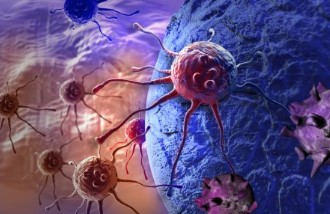Introduction to cancer treatment
Your treatment depends on the type of cancer, where it is in your body, the size and whether the cancer is found in any other part of your body.
The treatment planned by your consultant will also take into consideration your general health which includes any other health conditions you may have.
You may have different types of treatment so understanding your treatment and the side effects can help you to cope. Your nurse specialist or consultant will give you more specific details about your treatment plan.

Different types of treatment
There are many forms of treatment for cancer, below are just some of the most common ways to treat cancer.
Chemotherapy uses anticancer (cytoxic) drugs to destroy cancer cells. Cytotoxic means toxic to cells. Cytotoxic chemotherapy drugs disrupt the way cancers cells grow and divide but they also affect normal cells. This is what causes the side effects of this type of treatment. More detailed information about chemotherapy is available at the following link, this information is published by Macmillan. Understanding Chemotherapy
Radiotherapy uses a type of radiation and uses high energy rays, such as x-rays, to treat cancer cells. It destroys cancer cells in the area where it is given. It can sometimes destroy health cells in the area that is treated, this can cause side effects. More detailed information about radiotherapy is available at the following link, this information is published by Macmillan. Understanding Radiotherapy
Surgery is where surgeon removes all or part of the cancer. It can be used to treat many types of cancer. Sometimes you can have other treatments, such as chemotherapy or radiotherapy as mentioned above before surgery. The addition of these treatments can often reduce the size of the cancer, making surgery possible or reducing the type of surgery you may need.
Immunotherapies are treatments that use the immune system to find and attack cancer cells. There are different types of immunotherapy. Each one uses the immune system in a different way.
There are may also be other types of treatment not listed here. You consultant and nurse specialist will provide you with relevant information once your treatment plan has been agreed.
